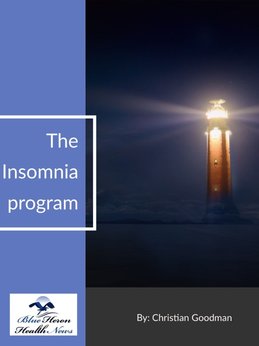
The Insomnia Program™ By Christian Goodman This program has been created by Christian Goodman, a natural health expert and sufferer of insomnia. He has used an audio program to let your fall sleep with the help of a bit of a hypnotic effect on your body.
What are the common symptoms of insomnia?
Common Symptoms of Insomnia
Insomnia is characterized by the inability to fall asleep, stay asleep, or achieve restful sleep. This sleep disorder can manifest through a variety of symptoms that impact both nighttime rest and daytime functioning. Understanding these symptoms is crucial for identifying and managing insomnia effectively.
Difficulty Falling Asleep
One of the hallmark symptoms of insomnia is the difficulty in initiating sleep. People with insomnia often lie in bed for long periods, unable to transition from wakefulness to sleep. This can be due to various factors, including stress, anxiety, or an overactive mind. The struggle to fall asleep can lead to frustration and anxiety about not being able to sleep, further exacerbating the problem.
Frequent Waking During the Night
Another common symptom is waking up frequently during the night. Individuals with insomnia may wake up multiple times and have trouble returning to sleep. These awakenings can be caused by discomfort, environmental disturbances, or underlying medical conditions. Frequent waking interrupts the sleep cycle, preventing the person from reaching the deeper, more restorative stages of sleep.
Waking Up Too Early
People with insomnia often wake up earlier than desired and cannot go back to sleep. This early morning awakening leaves them with insufficient sleep and can lead to significant daytime fatigue. The inability to sleep past a certain point can be particularly frustrating and is often associated with mood disorders like depression.
Not Feeling Well-Rested After Sleep
Even when individuals with insomnia manage to sleep for a reasonable amount of time, they often wake up feeling unrefreshed. This lack of restorative sleep means that despite spending enough hours in bed, the quality of sleep is poor. They may experience a lingering sense of tiredness and a lack of energy throughout the day.
Daytime Fatigue or Sleepiness
A prominent daytime symptom of insomnia is excessive tiredness or sleepiness. Individuals may find it hard to stay awake and alert during the day, leading to reduced productivity and impaired cognitive function. This persistent fatigue can affect their ability to concentrate, make decisions, and perform daily tasks efficiently.
Irritability, Depression, or Anxiety
Chronic insomnia often has a profound impact on mental health. The lack of quality sleep can lead to increased irritability and mood swings. Insomnia is also closely linked to mental health disorders such as anxiety and depression. The stress of not being able to sleep, combined with the physical toll of sleep deprivation, can create a vicious cycle that exacerbates these conditions.
Difficulty Paying Attention, Focusing on Tasks, or Remembering
Insomnia can severely impair cognitive functions, making it difficult to focus, pay attention, and remember information. Sleep is crucial for cognitive processes such as memory consolidation and problem-solving. Without adequate sleep, individuals may struggle with tasks that require mental effort and experience lapses in memory.
Increased Errors or Accidents
The cognitive impairments caused by insomnia can lead to an increase in errors and accidents. Whether at work, at home, or while driving, the lack of alertness and slower reaction times associated with sleep deprivation can pose serious safety risks. This is particularly concerning in situations that require quick decision-making or coordination.
Ongoing Worries About Sleep
People with insomnia often develop an ongoing preoccupation with sleep. They may worry excessively about not getting enough sleep, which can create a cycle of anxiety and further disrupt their ability to fall asleep. This anxiety can extend into their waking hours, affecting their overall quality of life and well-being.
Physical Symptoms
Chronic insomnia can also manifest through physical symptoms. These may include headaches, gastrointestinal issues, and a weakened immune system. The body’s ability to repair and rejuvenate itself is compromised without adequate sleep, making individuals more susceptible to illnesses and physical ailments.
Conclusion
Insomnia is a complex sleep disorder with a wide range of symptoms that affect both nighttime sleep and daytime functioning. The inability to fall asleep, frequent awakenings, early morning awakenings, and poor sleep quality are core nighttime symptoms. These lead to significant daytime impairments, including fatigue, irritability, cognitive difficulties, and an increased risk of accidents. Recognizing these symptoms is the first step toward seeking appropriate treatment and improving sleep health. If you experience persistent insomnia, it is important to consult a healthcare provider to identify the underlying causes and develop an effective treatment plan.

The Insomnia Program™ By Christian Goodman This program has been created by Christian Goodman, a natural health expert and sufferer of insomnia. He has used an audio program to let your fall sleep with the help of a bit of a hypnotic effect on your body.